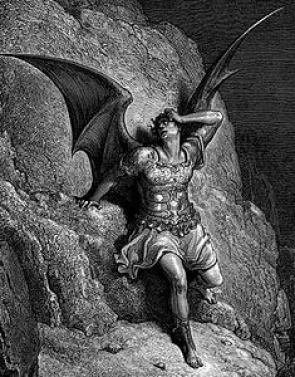
Lucifer is one of the central personages of the tragedy, which embodies the world of devilish power and immense pleasures. He serves as the source of contradiction, the beginning of anxiety and dissatisfaction. At the same time, an image is associated with the denial of everything inert and false in public attitudes, all the satirical elements in Faust.
Lucifer constantly intervenes in the principal’s deeds, distorting his intentions, which frequently leads to a tragic finale. In the first part of the plot, he certifies himself as part of the absolute evil, exposing Faust to temptations and trials. With the expansion of the hero’s activities, Lucifer changes his appearance, playing various roles. He can be a wit, magician, pimp, and even a mentor. In the world of spirits, he is just as plastic and versatile, because he finds a common language with witches and demons.
So, he plays the role of a sarcastic denier, mocks everything obsolete and inert. In the same cases when he acts as an assistant to Faust, he maliciously distorts his will. When they are at the emperor’s court of the, he becomes a court jester. To replenish the empty treasury, the demon offers the king to issue paper money under the fantastic provision of underground wealth and treasures.
He also takes part in the search for Helena, experiences some adventures in the world of mythological creatures of antiquity and, having assumed the appearance of the ugly Forkiad known from ancient myths, protects the rest of the lovers in a solitary castle. The tragic irony painted the final episodes of the second part. Blinded and decrepit Faust still dreams of draining swamps and great deeds, but Lucifer orders Lemurs not to build a mound, digging a grave for a doctor. After his death, he tries to take possession of his soul, but the choir of angels heralds the justification of the protagonist.
Lucifer in the Essays


Leave a Reply